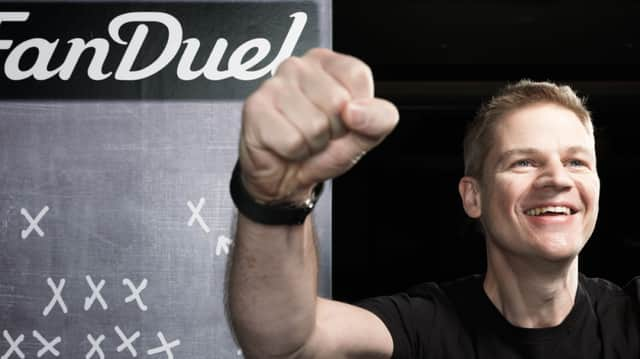Nigel Eccles: knowing when to "pivot" key for entrepreneurs


Knowing when to cut your losses in business and change direction – or “pivot” to use the Silicon Valley term – can be a bold move, but one that paid off for FanDuel chief executive Nigel Eccles.
The entrepreneur launched the fantasy sports operator in Edinburgh with four fellow co-founders, including his wife, Lesley, after deciding that their previous venture, a “political prediction market” called Hubdub, was not destined for greatness.Hubdub ran from 2008 to 2009 and Eccles, a former business development manager at The Scotsman owner Johnston Press, said the start-up “didn’t really have a good business model”.
Advertisement
Hide AdAdvertisement
Hide AdHe adds: “We knew that Hubdub had generated a lot of engagement but I was struggling to see how it could become an exciting business. We had a good team, but we just needed to come up with something different.”


That “something different” was FanDuel, which went on to be valued at more than $1 billion (£803 million) and agreed a merger with US rival DraftKings in November.FanDuel, now headquartered in New York but with about 150 people across its offices in Edinburgh and Glasgow, lets players build virtual teams of professionals from the fields of American football, baseball, basketball and hockey, with winnings paid out depending on performance, even though Eccles admits he didn’t have a strong interest in US sports back in 2009.
Nigel Eccles and Lesley Eccles are two of the founders of FanDuel. Picture: Malcolm McCurrach
“But we saw there was a market where something like 30 million people were playing fantasy sports, and we thought we could make it a lot better,” he says.Eccles had previous form in the world of gaming, having been an early employee at Flutter.com, a peer-to-peer betting website that merged with Betfair in 2001, and says: “That was a really fun journey and I enjoyed being part of an entrepreneurial company like that. For years I’d been a frustrated entrepreneur and it was only in 2007 that I plucked up the courage to jack in my sensible job at Johnston Press and go and do something crazy.”He adds: “Starting up a company is always a big jump into the unknown, and going into it I thought I knew more about it than I did. But it was much more rewarding to be my own boss and there comes a point when you just have to go ahead and do it.“From early on, in 2010 when we did one of our first live events, I knew this could be really big. I felt it was something that could be mainstream, but I didn’t appreciate what really big meant. It’s been a pleasant surprise.”